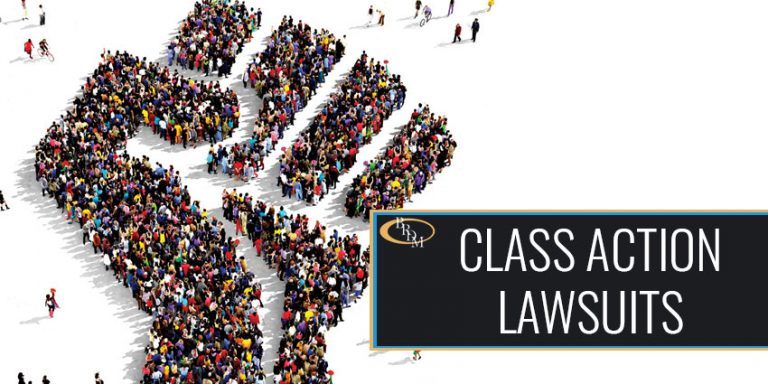Demystifying Class Activity Legal Actions: A Closer Appearance at Lawful Process
Course activity claims can be intricate and intimidating, often shrouded in a veil of mystery for those unknown with the lawful process involved. From understanding the requirements for class activity qualification to the duty of course reps, and from the procedure of class accreditation to the resolution of these claims, we will certainly unwind the details and lost light on the internal operations of this lawful mechanism.
Understanding Class Action Claims
Recognizing Course Activity Claim calls for a thorough exam of the lawful proceedings associated with collective litigation. Course activity claims are a sort of legal action where a group of people with comparable cases or complaints collaborate to initiate a lawsuit versus an usual accused. This type of litigation permits people with limited resources to collectively look for justice, as it incorporates the stamina of several individual claims into a solitary lawsuit.
The procedure begins with the identification of a lead complainant or course representative that submits the preliminary grievance on behalf of the whole class. The court then establishes whether the situation meets the needs for course accreditation, that include commonness, numerosity, typicality, and adequacy of depiction. If certified, the court alerts prospective class participants, providing them an opportunity to opt-out if they desire to pursue their cases separately.
Once the course is certified, the lawsuits proceeds via various phases, including exploration, motion technique, and, if needed, test. The end result of the suit can result in a judgment or a settlement, which is binding on all course participants unless they select to opt-out. Course action legal actions can encompass a variety of lawful issues, such as consumer defense, protections scams, work discrimination, and environmental damage.
Recognizing the nuances of course activity suits is crucial for both plaintiffs and offenders associated with collective litigation. It calls for a detailed understanding of the legal demands for qualification, the rights and responsibilities of course members, and the prospective advantages and threats connected with safeguarding or pursuing against course activity insurance claims.
Identifying Course Activity Eligibility
To establish whether a legal action qualifies as a class action legal action, details criteria must be satisfied. These requirements are created to make certain that the instance can sufficiently represent the rate of interests of a big team of people that have actually endured comparable injury or have actually been influenced by the very same concern. The vital consider identifying class action eligibility is the presence of a common inquiry or issue that affects all potential class members.
First of all, a course activity suit needs numerosity, which implies there should be a significant number of possible course participants included. This makes sure that a class action is an efficient means to settle the cases of a big group of people, instead than having everyone submit a specific claim.
Secondly, there must be commonness amongst the insurance claims of the prospective class participants. This suggests that there should be a common inquiry of legislation or fact that is main to the situation. A course activity may not be appropriate. if each prospective class participant's claim is unrelated and one-of-a-kind to the others.

The Duty of Course Rep
Class agents play a crucial function in course activity suits by standing for the interests of the whole course. These individuals are selected from within the course to act as the public face of the legal action and are accountable for choosing on part of all class members. The function of course representatives includes different duties and duties throughout the legal procedures.
Among the key responsibilities of class agents is to supply details and assistance to their fellow class members. They function as a point of get in touch with and interaction in between the course participants and the lawyers representing them. This consists of keeping the class members informed about essential updates, answering their concerns, and resolving any concerns they may have.
Class representatives also have the duty to proactively join the lawsuits process (Future FinTech class action lawsuit). This includes working closely with the lawyers to establish lawful techniques, collecting proof, and providing testimony if essential. They have to be actively associated with all elements of the case to ensure that the ideal rate of interests of the entire course are stood for
Moreover, class reps are accountable for accepting negotiations or various other resolutions gotten to in the claim. They need to thoroughly review the regards to the settlement and choose that is in the very best rate of interest of the whole course. This decision-making process calls for mindful best site consideration and examination with the course members.
The Process of Class Certification
The procedure of licensing a class in a class action suit involves a complete analysis of particular standards to identify if the situation fulfills the necessary requirements for class accreditation. Course certification is a crucial action in the lawsuits process as it figures out whether a lawsuit can proceed as a course activity, allowing a big team of people with comparable claims to be represented jointly by one or a couple of individuals.
To acquire course qualification, the plaintiff should show that the recommended class satisfies specific requirements. These requirements generally include numerosity, commonness, typicality, and competence of depiction. Numerosity requires that the class is so big that joinder of all participants is not practical. Commonality requires that there are concerns of regulation or reality usual to the course participants. Typicality requires that the claims or defenses of the class representatives are common of those of the course. Competence of depiction ensures that the class representatives will rather and sufficiently secure the passions of the course.
If the suggested class fulfills the needed demands,The court will look at these requirements and the plaintiff's proof to figure out. The court may also take into consideration various other elements, such as whether a course activity is the exceptional approach to settle the conflict and whether the class is completely natural.

As soon as the court gives class accreditation, the suit can proceed as a course activity, permitting the complainants to collectively seek alleviation and possibly get a judgment or settlement that profits the entire class.
Resolving Course Activity Suits
Once class accreditation has actually been provided, the next step in resolving a course action lawsuit is to browse the procedure of lawsuits or settlement negotiations. Litigation describes the legal process in court, where the plaintiff's attorney provides evidence and debates to support their cases, and the accused's attorney counters with their very own proof and arguments. This procedure can involve numerous stages, such as pretrial activities, discovery, and test. During pretrial activities, both parties might file movements to reject the case or slim down the concerns in opinion. Discovery allows each side to collect proof and details from the other event with approaches such as file depositions, interrogatories, and demands. If the situation continues to test, both parties provide their situation prior to a judge or jury, that will certainly then choose the end result.
On the other hand, settlement negotiations involve discussions between the parties to reach a mutually acceptable resolution without going to trial. Future FinTech class action lawsuit. browse around here Negotiation provides might be made at any type of phase of the lawsuits procedure, and if both events concur, a negotiation their website arrangement is gotten to. This contract typically outlines the terms and problems of the negotiation, including any type of monetary compensation, injunctive alleviation, or various other solutions. When the settlement is completed, it exists to the court for approval.
Final Thought
To conclude, course activity suits play an important role in providing justice and settlement to big teams of people who have been damaged by the exact same entity. By accrediting a class and assigning class reps, the legal process comes to be a lot more easily accessible and effective for the complainants. Dealing with these lawsuits can be a facility and lengthy procedure, but it is crucial in holding companies responsible for their activities and guaranteeing reasonable outcomes for all impacted celebrations.
From comprehending the criteria for class activity eligibility to the function of course agents, and from the procedure of class qualification to the resolution of these lawsuits, we will untangle the ins and outs and lost light on the inner functions of this lawful mechanism. The crucial variable in identifying class action qualification is the presence of a typical inquiry or concern that affects all prospective course participants.
If each potential class member's insurance claim is unique and unrelated to the others, a course activity might not be appropriate.
Class agents play a critical role in class action suits by standing for the passions of the whole class.When course qualification has actually been granted, the next step in dealing with a class action claim is to navigate the process of litigation or settlement arrangements.